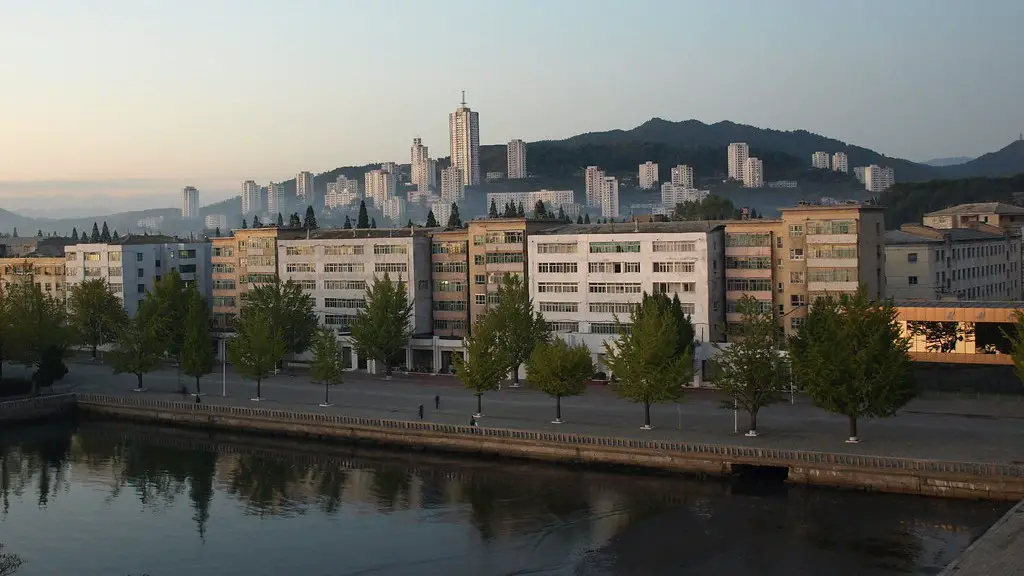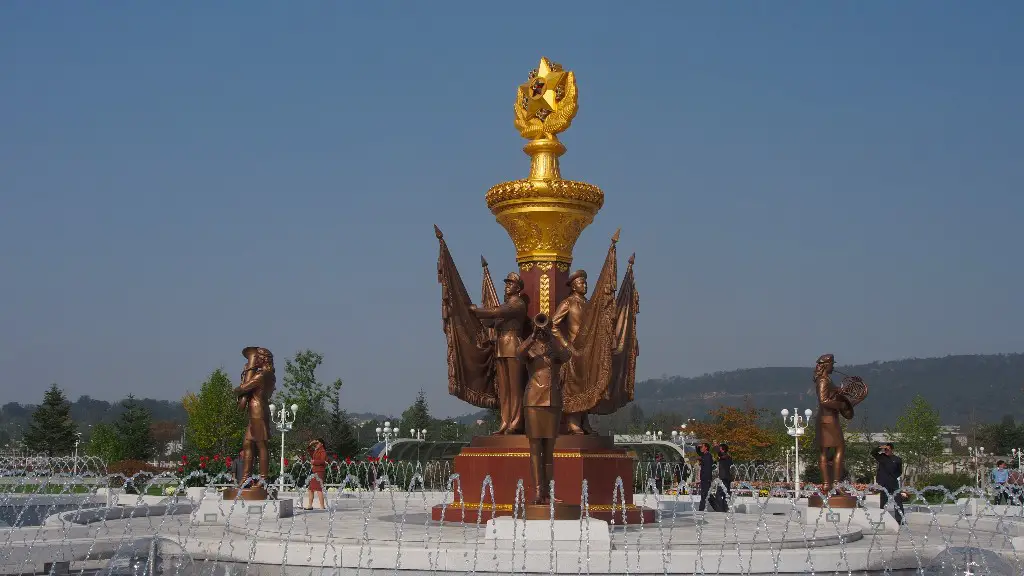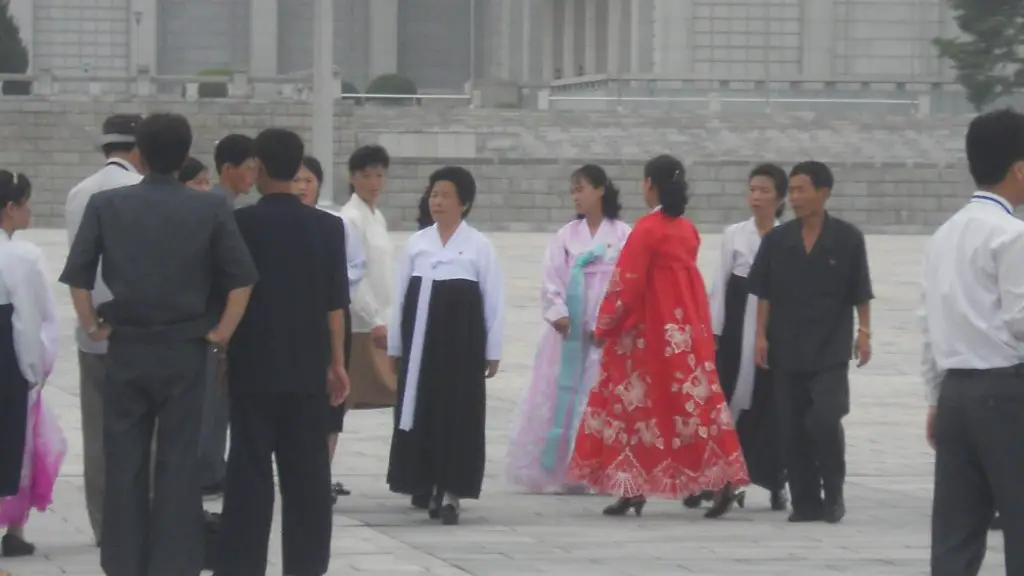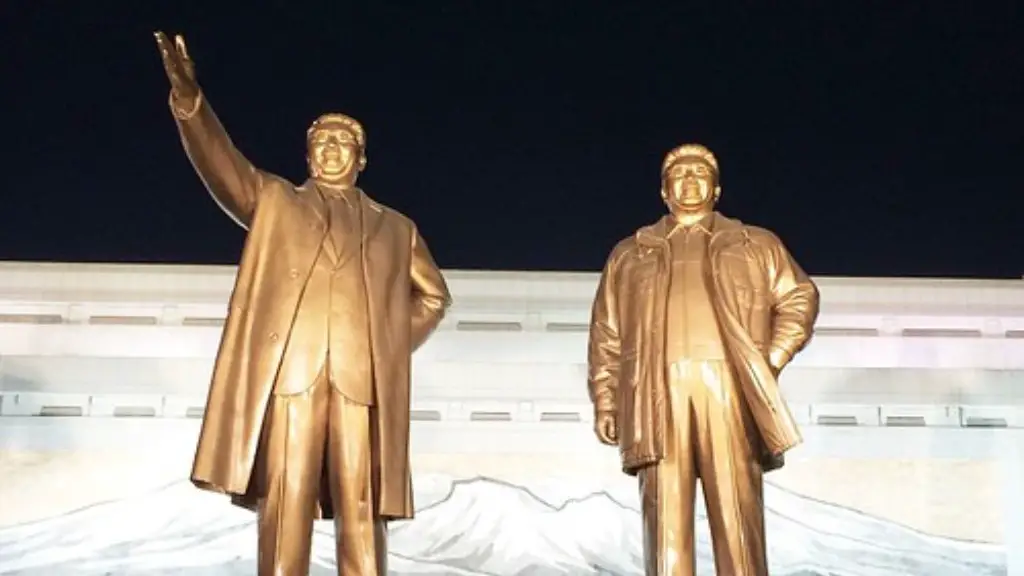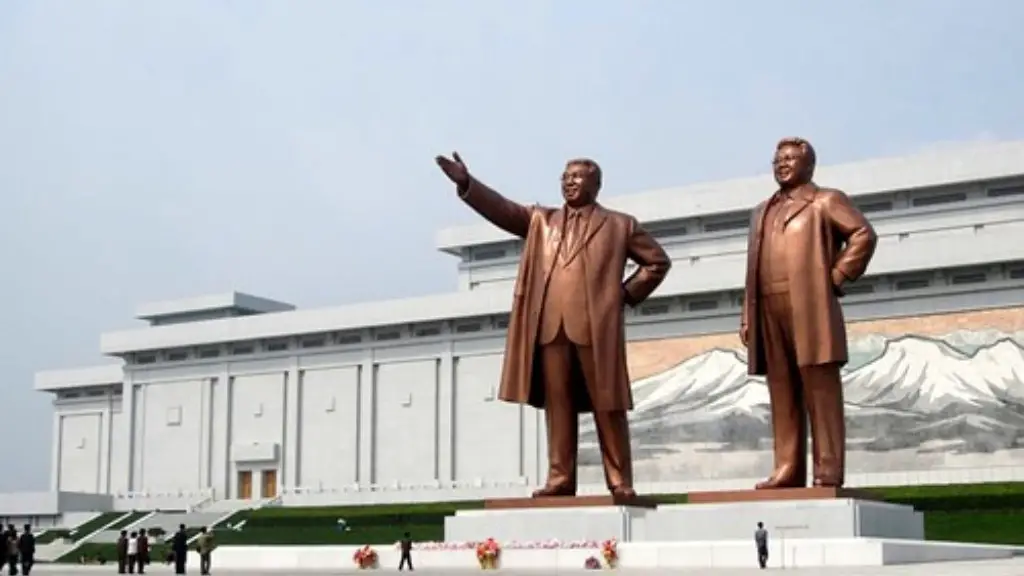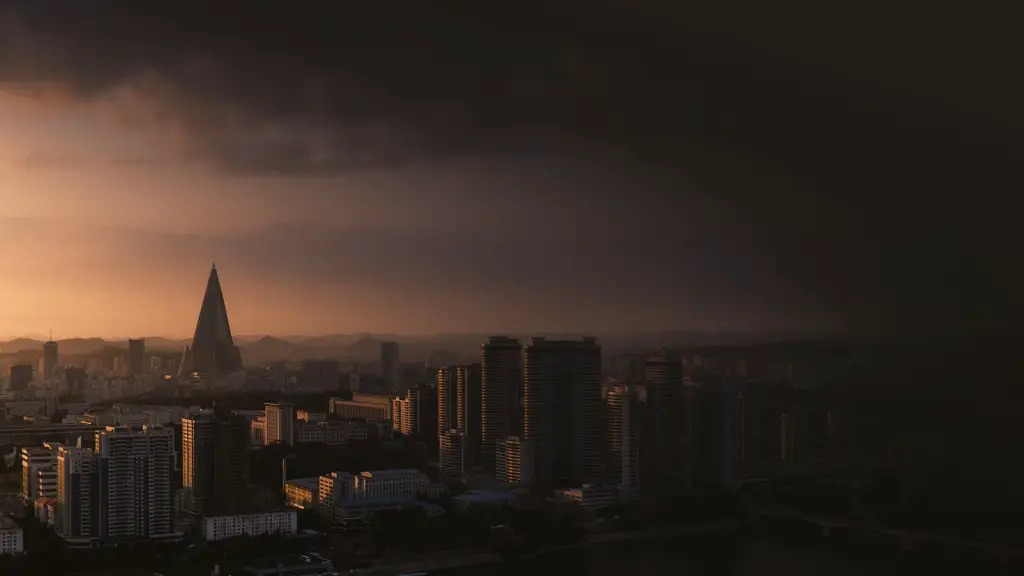North Korea is one of the most repressive and isolated countries in the world. It is ruled by the Kim dynasty, a family that has been in power for generations, and is officially known as the Democratic People’s Republic of Korea (DPRK). Despite its name, the country is not a democracy, with the government controlling most aspects of people’s lives, including their freedom to move about the country, access to information, and right to vote.
Anyone who wants to escape North Korea must know that the process is risky, difficult and dangerous. North Korea’s borders are heavily-guarded and patrolled by the military. It is also a criminal offence to try and leave the country without authorisation. If you do manage to escape, the North Korean government have been known to use brutal tactics to punish those who are caught, including imprisonment, torture, and execution.
Experts believe the best way to escape North Korea is to seek help from outside the country. This could be from a family member who lives abroad or from an NGO that specialises in helping refugees. There are also a few organisations who provide financial and logistical support to those trying to escape. Such organisations can provide helpful advice on how to cross borders safely, how to access financial assistance, and how to apply for asylum in another country.
For those who decide to take the risk, there are two main routes to freedom: fleeing through the country’s northern border or traveling out of the country using human traffickers. Fleeing through the northern border is an extremely dangerous route, as many people are killed or arrested while attempting it. It requires considerable physical strength, skill in avoiding detection, and financial resources. Those who decide to use human traffickers must be aware of the potential risks, as most traffickers have been known to trick and exploit their victims.
The journey to freedom can take weeks or months, and may require multiple border crossings. Those who make it out of North Korea successfully will most likely find themselves in a third country, away from family, friends and home. Therefore, it is important to be aware of the psychological impact of such a journey and the importance of finding people who can provide physical and emotional support in the new country.
For those trying to help people escape North Korea, it is important to understand the laws and customs of the country. There are some countries, such as China, that allow limited freedom of movement along the border, while others don’t even allow refugees into their territory. It is also important to be aware of the cultural differences between North and South Korea, as those who manage to escape will find it difficult to adjust to a new environment.
Finally, it is important to consider the costs of fleeing the country. Escaping North Korea is an expensive process that may require access to financial resources and support networks outside of the country. Additionally, many refugees end up living in poverty in their new countries, and so it is important to be mindful of this reality when planning a journey out of North Korea.
Practical Support
It is essential to have a plan before attempting to escape North Korea and to know who will be able to offer practical support throughout the journey. One must also be aware of the different laws and regulations in neighbouring countries, as well as the language barriers. Organisations such as Free North Korea can provide useful advice to those trying to flee, as well as practical support such as information on border crossings, safe routes and potential destinations. They also work to protect refugees in neighbouring countries and provide training to prepare them for life in a new country.
Other organisations such as North Korea Freedom Now, assist North Korean refugees in South Korea by providing them with resources such as legal aid and financial assistance. Additionally, they advocate for humanitarian assistance and increased rights for North Koreans in South Korea.
In order to lessen the financial burden of escaping North Korea, families of those attempting to escape can access various funds, such as the North Korean Human Rights Fund and the North Korean People’s Fund. These funds provide financial aid for refugees and give them the resources they need to start their new lives.
Support from friends and family members is essential for those trying to escape North Korea. They can provide invaluable information about the journey, as well as emotional and financial support. It is also important to have contacts in the destination country who can provide refugees with help once they arrive.
Changing Attitudes
It is important to remember that those who manage to escape North Korea are in the minority. Most North Koreans live in fear, and the regime’s oppressive policies prevent people from leaving, even if they want to. However, there is evidence to suggest that the relationship between North and South Korea is slowly improving, with increased contact between ordinary citizens on both sides of the border. This shift in attitude has given hope to those dreaming of a better tomorrow, and could be a sign of positive change.
International organisations have also played an important role in raising awareness of the situation in North Korea. Such organisations have put pressure on the North Korean government to recognise basic human rights and provide its citizens with more freedom. Furthermore, there has been a growing focus on public education and access to health care, with some organisations providing medical assistance to vulnerable communities in the country.
At an individual level, organisations such as ASiF (Act for the People) are doing their best to help those still living in North Korea. They provide information about the situation in the country and how to access food, medical help, and other forms of support. Additionally, they advocate for the rights of all North Koreans and work to educate the international community about the country.
It is clear that those wishing to escape North Korea face an immense challenge. But it is not impossible, and many have made the journey to freedom with the help of organisations, family members, and friends. With more international attention and support, even more people may have the courage to make the difficult journey.
Internet Access
Internet access in North Korea is heavily restricted and it is estimated that only a handful of people have internet access in the country. The North Korean government uses a variety of tactics to prevent people from gaining access to the outside world, including monitoring emails and blocking foreign websites. This makes it almost impossible for those within the country to find reliable information or to access online resources such as communication platforms, news sites and human rights organisations.
However, some organisations have found ways to bypass the government’s restrictions. NGOs such as Choson Exchange, use email and snail-mail to provide young North Koreans with educational materials and online courses. Similarly, the Human Rights Foundation’s ‘Flash Drives for Freedom’ project uses USB sticks pre-loaded with information about the outside world as a way to keep North Koreans informed. These organisations hope to provide North Koreans with the tools and knowledge they need to improve their lives, and to foster a sense of freedom and hope.
The local population has also managed to find ways to access the restricted internet. North Koreans have figured out ways to get around the government’s firewall and access the open internet, though it requires considerable effort, money and skill to do so. The North Korean government is aware of this and has cracked down hard on anyone suspected of accessing the internet illegally.
Finally, there have been some attempts to increase internet access in North Korea. In 2017, the government launched its own intranet, designed to provide citizens with information about the country, as well as access to online services such as banking and healthcare. While this can be seen as a step in the right direction, it is important to remember that even with this intranet, North Koreans are only able to access a limited selection of websites, carefully monitored by the government.
Media Representations
The media plays an important role in shaping people’s perceptions and understanding of North Korea. However, there have been numerous examples of biased or sensationalist media representations of the country, which can lead to misconceptions and misunderstandings. For example, the country is often depicted as a “hermit kingdom” or a “rogue state”. Additionally, images of North Koreans are often portrayed in an extremely negative light, with language that is hyperbolic and dehumanising.
The issue is further complicated by the fact that most media coverage of the country relies on a small pool of interviewees, mostly defectors and those who have escaped the country. This means that many of the stories we hear about North Korea are not representative of the individual experience, and can often be coloured by the interviewees’ political opinions.
Another issue is the language used in media coverage of North Korea. Words such as “tyranny” and “oppression”are often used to describe the situation in the country, and can further stigmatise North Koreans and contribute to negative stereotypes. The use of such language also masks the complexity of the issues faced by North Koreans, such as poverty and lack of access to basic needs.
The media has an important role to play in reporting on North Korea, but it is essential to ensure that representations of the country are nuanced, balanced, and informed by multiple perspectives. This means that media organisations need to make sure that their reporting is in line with international standards, and to actively seek out multiple voices and stories to ensure that their coverage is as accurate and informed as possible.
Life After Escape
For those who manage to escape North Korea, life in their new country can be difficult. Refugees may experience language barriers, cultural differences, and in some cases, discrimination. Additionally, the process of resettlement can be long and complicated, and many refugees find themselves in difficult financial situations, as they often need to rely on charities and donations to cover their basic needs.
These difficulties can be further compounded by the psychological impact of leaving behind family, friends, and home. Many refugees struggle with feelings of guilt, homesickness and trauma. In order to cope with these feelings, they may rely on support networks such as refugee organisations or family members who already live in the country.
In order to help North Korean refugees adjust to their new lives, organisations such as the Korean American Association (KAA) and the Korean Unification Association provide various services, such as language classes, cultural programmes and job placement assistance. Additionally, there are a number of scholarships and grants available to North Korean refugees, which can help to cover the costs of education or training.
It is also important to highlight the contributions North Korean refugees have made to their new countries. Refugees have played an important role in strengthening ties between North and South Korea, and have contributed to society in various ways, including through the arts, culture, education and business. This underscores the importance of providing refugees with the support and resources they need to build successful lives in their new countries.
